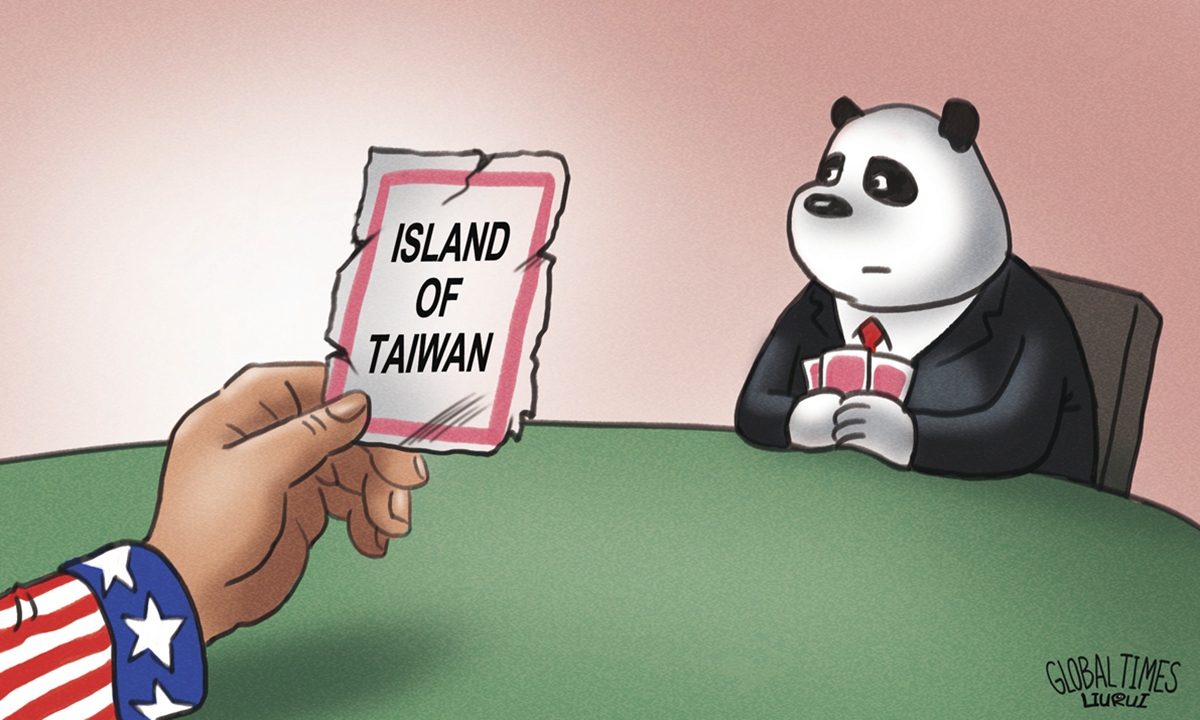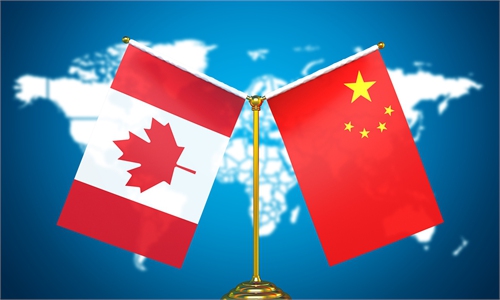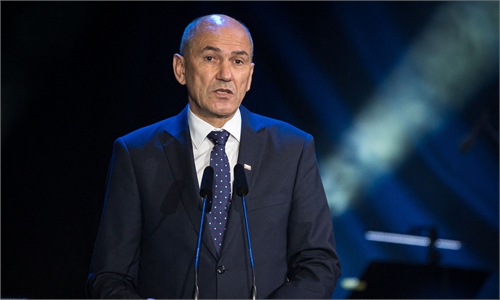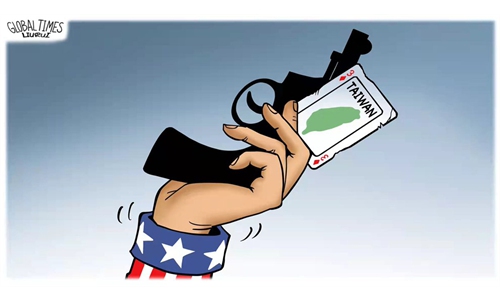
US, China, Taiwan island Illustration: Liu Rui/GT
The US government seems high on playing tricks on the Taiwan question lately. To begin with, the US Department of State removed some terms including "Taiwan is part of China" and "the US does not support Taiwan independence" from its web page on "US Relations with Taiwan." Almost at the same time, the Pentagon "corrected" a readout of China's Defense Ministry in a phone call between Chinese and US defense ministers.John Kirby, Pentagon press secretary, said at a regular press briefing last week, that China "erroneously claimed" that "the US adheres to the one-China principle… He did not say this." He later explained Defense Secretary Lloyd Austin was saying the US "remains committed to our one China Policy." The moves are typical political stunt which displays the US administration's intention, when juggling with words, to obscure and hollow out the one-China principle.
The content on the website of the US State Department is neither legal document nor formal policy. The efficacy of a Pentagon press secretary is quite similar. Does Kirby have the authority to launch a showdown with China? No. The most he could do is play on words when issuing press releases, Shen Yi, a professor at Fudan University, told Global Times.
When playing word games, the US is making its strategic ambiguity on the Taiwan question more ambiguous. For the US, wordings like "Taiwan is part of China" and "the US does not support Taiwan independence" are clear, though the US has obviously committed to them before.
What is the US' version of "one China policy"? The answer is increasingly deviating from the concept in the three China-US joint communiqués, which acknowledge there is only one China in the world and Taiwan is part of China.
When the US intentionally obscures its one China policy in diplomatic rhetoric, its actions are, on the contrary, quite clear. Take a look at Washington's frequent arms sales to the island, high-level official exchanges with Taiwan authorities, and blatant defense cooperation between the two sides.
The US hype over the Taiwan question could also have something to do with Secretary of State Antony Blinken's postponed China policy speech, as well as President Joe Biden's visit to South Korea and Japan later this month, and the Quad Summit, scheduled around May 24. The US is warming up the atmosphere to unite its Asia-Pacific allies on their possible new functions in the region, or more specifically, on the Taiwan question.
Regardless of the fact that in 1972, then US president Richard Nixon made clear during his ice-breaking trip to China that Taiwan island's status is "determined — one China, Taiwan is part of China." Pentagon wants to put it on the shelf today.
The US is running out of efficient gadgets in its toolbox against China. As it believes China has too much to lose when it comes to the Taiwan question, Washington simply cannot help but play the "Taiwan card" every once in a while. But the US is aware China is not a pushover. And the US understands it all too well what consequences it will face if it violates China's core interests, Lü Xiang, a research fellow at the Chinese Academy of Social Sciences, told the Global Times.
Just look at the US' once attempted major moves involving the Taiwan question: both US House Speaker Nancy Pelosi's planned visit to the island and former US ambassador to the UN Kelly Craft's scheduled tour to Taiwan during the Trump presidency failed to take place, Lü added.
Be it changes to the US State Department's website or the Pentagon's "correction," the US goal is to showcase its tough stance on China, stir up some trouble, and fill the vacancy of the current Democratic administration's list of competence and achievement, as the midterm election is approaching. Because the truth is "the current US government does not have achievements in other fields," Shen said.
According to Shen, the US does not have enough resources to engage in a full-scale collision with China on the Taiwan question, let alone a showdown - the high inflation in the US, soaring debt, and a hallow treasury that needs to be filled by stealing other countries' money, all show that the US, if rational, has no reason to intensify contradictions with China.



